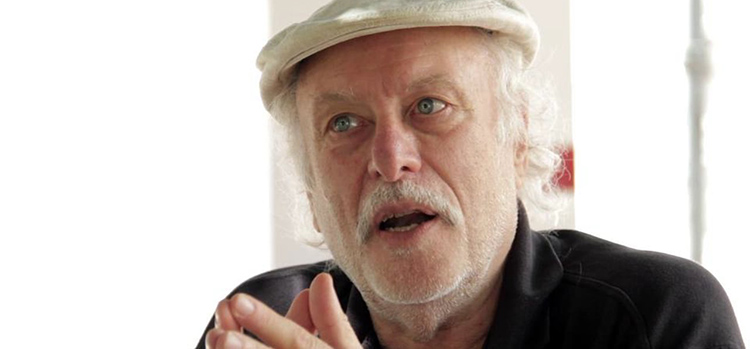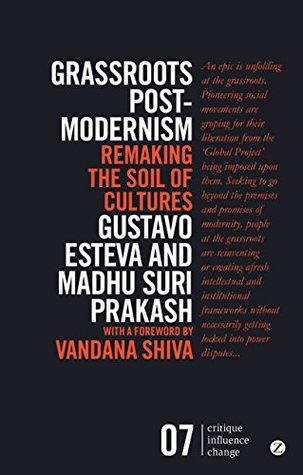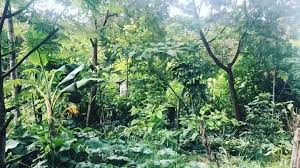Delaying would mean pushing the burden to future generations, she said. “The Government will not hold back”.
[But reader, the government did
hold back.]
https://www.stuff.co.nz/environment/climate-news/124079047/the-government-will-not-hold-back-jacinda-ardern-on-how-nz-could-go-zero-carbon /1
[But reader, the government did
hold back.]
https://www.stuff.co.nz/environment/climate-news/124079047/the-government-will-not-hold-back-jacinda-ardern-on-how-nz-could-go-zero-carbon /1
"The cuts will start out reasonably gently, at an average of 5.6 per cent lower than 2018 over the next four years, before ramping up to almost 26 per cent lower in 2031-35."
Yeah, nah. But then again, the centre never was going to betray its own. {see also: covid payments} /2
Yeah, nah. But then again, the centre never was going to betray its own. {see also: covid payments} /2
Facing climate disruption means facing the way modernity is already disrupted: how it relies on extraction & exploitation not just in the future but now, the seed from which it was birthed: "the hidden agenda (and darker side) of modernity was coloniality" - Mignolio /3
Addressing colonisation means we need to talk about progress & what our society values. More importantly we need to talk about who is empowered to set & enforce those values and how they're lived out in our day to day.
This will, by necessity, be far more local & Māori-led./4
This will, by necessity, be far more local & Māori-led./4
Framing responses to existing & pending climate breakdown as "cuts" misses a huge opportunity for NZ to engage collectively with how our lives could be organised for the better, for example, by building a diverse, regenerative and localised food system
https://www.mdpi.com/2071-1050/12/9/3524/htm /5
https://www.mdpi.com/2071-1050/12/9/3524/htm /5
Changes like this won't come from the top - the vested interests are too great. Instead, they will emerge from the grassroots, as they have always done, building alternative networks & practising the solidarity necessary to subvert & ultimately abolish the capitalist state. /6
For the [white, middle-class, increasingly 'greenie'/reo speaking] centre, this means betraying the privilege of electric cars & climate smugness to stand in solidarity with existing efforts for justice (whether they use electric cars or no), offering resources, skill & time. /7
As someone who came to this work via climate change, the urgency is hard to shake. But for so many, the urgency of dispossession, disruption & instability has long been real – woven into the fabric of our modern age.
Will more [top-down] urgency really undo it? /8
Will more [top-down] urgency really undo it? /8
Or must we each do our bit – not in individualised, shorter-shower, kind of ways, but by organising solidarity-based alternative – living the better world just transition demands while leveraging collective power to correct the imbalances that flow to the top?
[a personal q] /9
[a personal q] /9
Pathways here are many; we each start from different places – but one under-discussed lever is food, especially in [clean green, extractive, empire-servicing] NZ.
Using huge amounts of carbon, we feed 20+ million people while >85000 children go hungry. That's fucked. /10
Using huge amounts of carbon, we feed 20+ million people while >85000 children go hungry. That's fucked. /10
At the moment, food is a commodity, subject to capitalist enclosure & the exclusion on which its 'value' relies. But it needn't be.
Scholars like @JoseLViveroPol argue for food to be considered a commons; the movement for food sovereignty works to re-localise control. /11
Scholars like @JoseLViveroPol argue for food to be considered a commons; the movement for food sovereignty works to re-localise control. /11
Such ingredients hint at a deeper, more radical role for food in addressing the climate crisis.
Ecologically-enhancing practices (like #agroecology & #agroforestry) provide a way to meet climate targets – but it's different social structures that hold the most potential. /12
Ecologically-enhancing practices (like #agroecology & #agroforestry) provide a way to meet climate targets – but it's different social structures that hold the most potential. /12
This is something I'm exploring in my research: the ways that food both has and can be combined with work for social justice, subverting our narratives of artificial scarcity & catalysing / providing the means to practice a return to the commons. /13
If @nzlabour & @NZGreens really are interested in advancing beyond GDP, then it's these intersections that are most fertile, combining subsidies for tree planting that go beyond industrial forestry & towards more diversified, democratically-controlled & sustainable projects. /14
For example, Cuba provided a subsidy for groups who pledged to adopt a) democratic cooperative structures & b) [zero carbon] agroecological methods, granting them leases to government land.
The NZ govt controls more than 365,000 ha of pastoral farmland. Hook. It. Up. /15
The NZ govt controls more than 365,000 ha of pastoral farmland. Hook. It. Up. /15
Another option is to support alternative food production systems, like the long-term agroforestry practised by Mark Shepard [growing "food, fuel, fibre & medicine" in ways that increase water capture & drought resilience while reducing dependence on global supply chains] /16
Similarly, one Northland farm already practises a dynamic & abundant form of small-scale agroforestry using Ernst Götsch's syntropic principles, working with the process of succession to grow food while transitioning grass back to forests (& supporting local jobs). /17
Long story short, there are options for participation & experimentation galore – but the first task is to think expansively (& collectively) about what sort of NZ we might want, & the ways food system change can help get us [all] there.
That's where my climate hope lies. 18/18
That's where my climate hope lies. 18/18
See also: a million other [historical] things. The Black Panthers. Indigenous agroforestry. Māori food cooperatives. Collective rituals and belonging. Skin in the game. Prefigurative politics & new worlds within the old. The folk roots of all, before. https://foodfirst.org/wp-content/uploads/2013/12/BK18_2-2012_Summer_Survival_Pending_Revolution.pdf

 Read on Twitter
Read on Twitter


![As someone who came to this work via climate change, the urgency is hard to shake. But for so many, the urgency of dispossession, disruption & instability has long been real – woven into the fabric of our modern age. Will more [top-down] urgency really undo it? /8 As someone who came to this work via climate change, the urgency is hard to shake. But for so many, the urgency of dispossession, disruption & instability has long been real – woven into the fabric of our modern age. Will more [top-down] urgency really undo it? /8](https://pbs.twimg.com/media/EtNZCaAVoAApfC_.png)
![As someone who came to this work via climate change, the urgency is hard to shake. But for so many, the urgency of dispossession, disruption & instability has long been real – woven into the fabric of our modern age. Will more [top-down] urgency really undo it? /8 As someone who came to this work via climate change, the urgency is hard to shake. But for so many, the urgency of dispossession, disruption & instability has long been real – woven into the fabric of our modern age. Will more [top-down] urgency really undo it? /8](https://pbs.twimg.com/media/EtNZHgUVEAAXRtq.png)
![Or must we each do our bit – not in individualised, shorter-shower, kind of ways, but by organising solidarity-based alternative – living the better world just transition demands while leveraging collective power to correct the imbalances that flow to the top? [a personal q] /9 Or must we each do our bit – not in individualised, shorter-shower, kind of ways, but by organising solidarity-based alternative – living the better world just transition demands while leveraging collective power to correct the imbalances that flow to the top? [a personal q] /9](https://pbs.twimg.com/media/EtNkT5tVkAE2v76.jpg)
![Another option is to support alternative food production systems, like the long-term agroforestry practised by Mark Shepard [growing "food, fuel, fibre & medicine" in ways that increase water capture & drought resilience while reducing dependence on global supply chains] /16 Another option is to support alternative food production systems, like the long-term agroforestry practised by Mark Shepard [growing "food, fuel, fibre & medicine" in ways that increase water capture & drought resilience while reducing dependence on global supply chains] /16](https://pbs.twimg.com/media/EtNvIS-UYAEpeBm.png)
![Another option is to support alternative food production systems, like the long-term agroforestry practised by Mark Shepard [growing "food, fuel, fibre & medicine" in ways that increase water capture & drought resilience while reducing dependence on global supply chains] /16 Another option is to support alternative food production systems, like the long-term agroforestry practised by Mark Shepard [growing "food, fuel, fibre & medicine" in ways that increase water capture & drought resilience while reducing dependence on global supply chains] /16](https://pbs.twimg.com/media/EtNvQI2VkAA2QlK.png)




